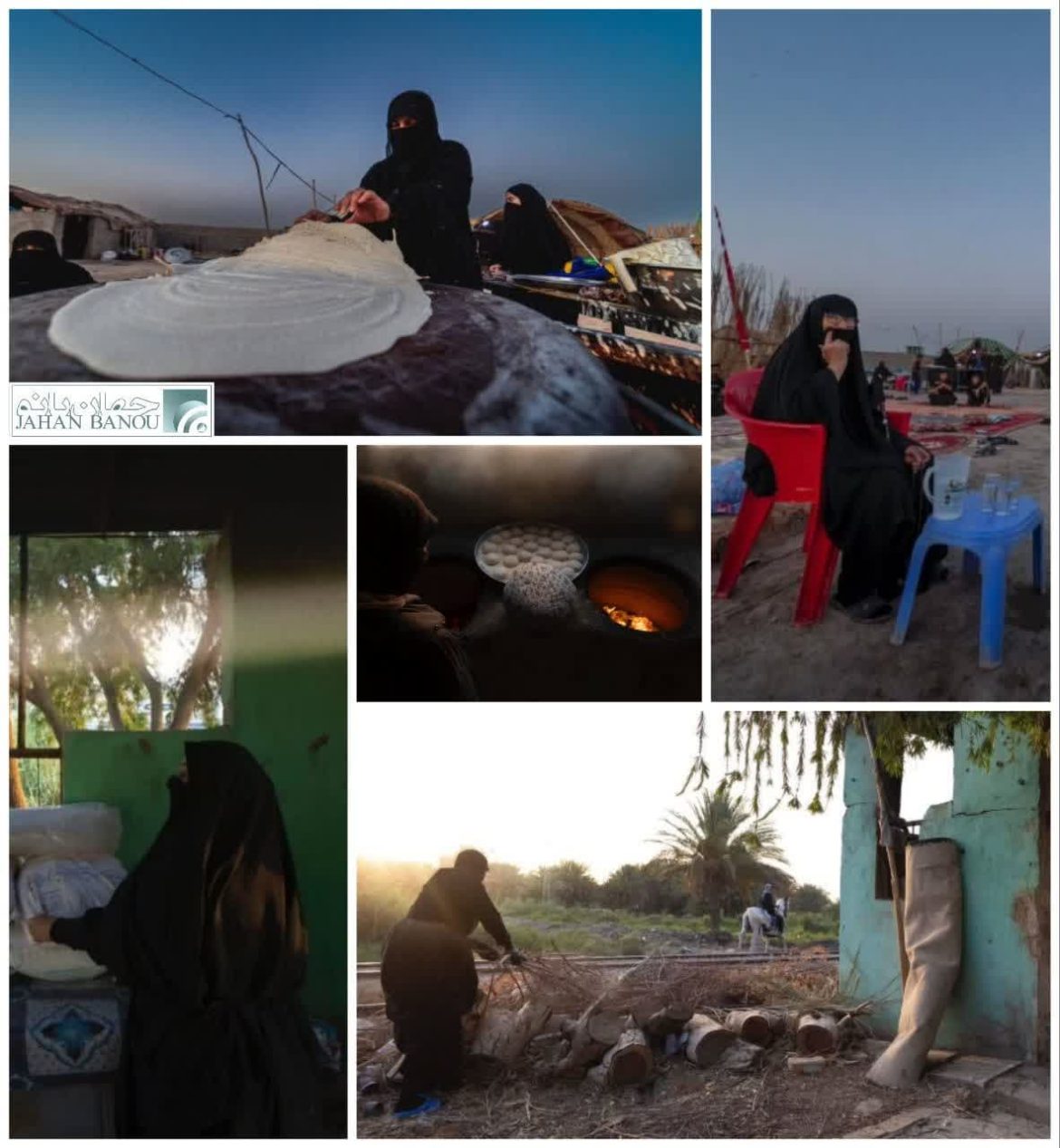Iraqi women—many of whom have endured war, siege, and the brutality of ISIS—are now at the heart of the centuries-old Arba’een pilgrimage, offering hospitality, organizing service tents (mawakib), and proudly serving as guardians of one of the world’s largest religious gatherings.
A Tradition Reborn Through Women’s Hands
According to Jahanbanou’s female correspondent, the Arba’een pilgrimage, the world’s largest annual religious gathering, stretches back over 150 years and draws millions of pilgrims to Karbala every year. While wartime restrictions under Saddam Hussein had dimmed its observance, the tradition saw a powerful revival following his regime’s collapse—and today, it commands global attention.
Women in Iraq now occupy roles far beyond participants; as mawkib holders and volunteers, they carry the pilgrimage’s spirit forward—especially amid sweltering summer heat that exceeds 50°C. They bake bread, hand out water and meals, and create resting areas—often alongside children—ensuring the pilgrimage remains a testament to their unwavering commitment.
Stories of Resilience and Devotion
Zahra Al-Ruba’i, a final-year pharmacy student, and her elderly mother run a small mawkib near Hillah. Zahra shares, “For the pilgrims of Imam Hussein (peace be upon him), we endure the heat and every hardship. How could we forget that Lady Zainab (peace be upon her) bore the pain of captivity in 61 AH?” Her mother, with tearful eyes, adds, “Serving the pilgrims of Imam Hussein is our honor—it’s not even a fraction of Lady Zainab’s bravery.”
A short walk away, Um Abbas, an elderly woman from Basra who lost two children during the ISIS conflict, reflects deeply: “In Iraqi culture, guests are held dear. If that guest is of Sayyid al-Shuhada, they are most beloved. Hospitality is both our national and religious identity.” She adds with a smile, “Iran fills us with pride—it is your second homeland.”
These powerful personal narratives illustrate how Arba’een transcends ritual. It becomes a stage where Iraqi women—through patience, self-sacrifice, and hospitality—keep alive a legacy of devotion to the Ahl al-Bayt.
A Deep-Rooted Culture of Generosity
Beyond individual stories, a broader cultural ethos drives this generosity. Many of the food, lodging, and medical services offered during Arba’een are funded directly by locals from their own pockets—not by governments or organizations. One Reddit user observing this generosity commented:
“Iraqis are very hospitable and proud to be of service to pilgrims…. But most of the stuff you see is literally being done by regular citizens that want to help.”
Another shared:
“Nothing is paid by Iran. Iraq offers everything for free—from the free visas to Iranians to everyday people organizing service stalls…. Iraqis save for this time every year and some do it as a nadr (vow).”
Women, with their deep sense of duty and faith, are central to this outpouring of love and service—turning their mawakib into beacons of compassion and solidarity.
Reporter: Hifa Pordel


